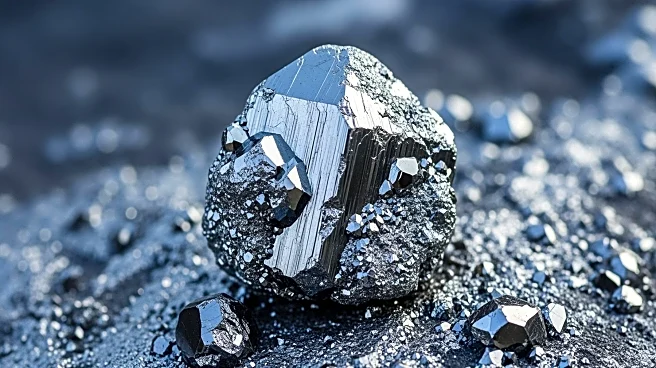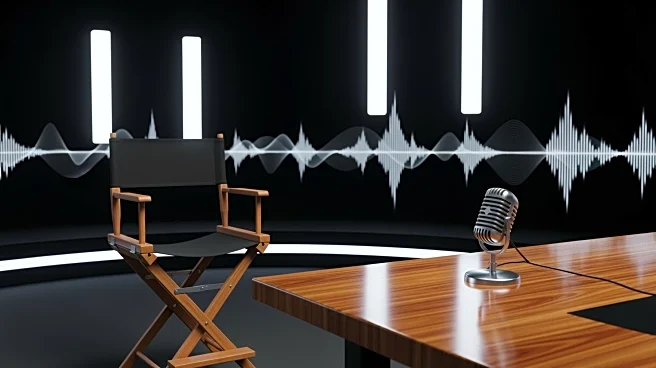By Jeff Mason
(Reuters) -From firing people to promoting jeans, calling for peace deals or the renaming of a sports team, President Donald Trump keeps a lot on his proverbial to-do list. Much of it is unrelated
to running the country.
More than six months into his second term as U.S. commander-in-chief, Trump, a former New York businessman and reality television host, has applied a hands-on management style and producer-like attitude toward governing, relying largely on his own instincts for decisions large and small.
Using the tools of social media and a propensity for bullying, Trump personally wades into issues inside and outside the federal government to get his way. He harangues company executives to invest in America and uses trade deals as leverage over foreign leaders to end conflicts.
Last week he fired the head of the Bureau of Labor Statistics over unproven allegations she falsified figures that he didn't like. This week he called for the head of Intel to step down over ties with China, and the company's stock fell.
In recent months he has pressed the Washington Commanders football team to change its name back to the Redskins, forced universities to pay huge amounts to the federal government, boosted retailer American Eagle Outfitters' shares with a compliment about a controversial jeans commercial featuring actor Sydney Sweeney and attempted to shore up Republican power by pushing for political redistricting in Texas.
Trump's style, which can confound both his friends and his foes, is dramatically different from his more traditional predecessors. It has earned him condemnation for being caustic and praise for being effective at getting what he wants.
"While he delves into topics that are certainly distractions relative to the big business of leading the world’s greatest nation, it can also be said that past presidents have excessively deferred to the bureaucracy and failed to deliver the change their voters expected," said Carlos Curbelo, a Republican former congressman from Florida.
"Trump views himself more as the CEO of the U.S.A. than as president," Curbelo added. "It’s good for decision making and challenging for the constitutional order which made our country the world’s greatest economic and military force."
Trump has taken on academia, the legal world, media companies, athletics, the federal bureaucracy and more, all while retooling the world economy with tariffs, cracking down on immigration flows, upending relations with allies and putting his stamp on American culture.
Though he has a team of advisers, the president frequently follows his own counsel, making policy decisions and then announcing them himself, ramifications aside.
"I think what a lot of people miss about Trump is he's the marketer-in-chief," said Ford O'Connell, a Republican strategist with ties to the White House. "Not only is he his own best press secretary, he's also his own best chief-of-staff."
A POTUS WHO 'CAN'T FOCUS'
Critics question why Trump gets bogged down in issues that are secondary to his goals of strengthening the U.S. economy, for example, or achieving a peace deal between Russian President Vladimir Putin and Ukrainian President Volodymyr Zelenskiy.
"He's commenting one moment on ... Putin and tariffs and all that's happening in the world and the next moment he's talking about, oh, Sydney Sweeney, and all these other issues that are completely unrelated to being president of the United States," said Charlie Dent, a Republican former congressman from Pennsylvania. "He simply can't focus."
The White House said Trump is using his skills to deliver on policy priorities. “President Trump’s leadership style can be summed up plainly as decisive and commanding," said White House spokesman Harrison Fields.
Trump also employs a talent to distract when facing difficulty. Though that super power has largely eluded him with the controversy over sexual offender Jeffrey Epstein and the Department of Justice's refusal to release files related to the disgraced financier's case, Trump's broad ability to change the subject and dominate the news cycle has stupefied his opponents for years.
"His leadership style is much closer to that of an executive producer, and the executive producer who has a really big picture understanding of the audience," said Republican strategist Kevin Madden, a senior adviser to former Massachusetts Governor Mitt Romney's 2008 and 2012 presidential campaigns.
"I think he trusts his instincts about the audience over anybody else, and that's why you see him oftentimes, you know, managing his own policy portfolio."
Trump, though not a stickler for detail on all things policy-related, does get into the weeds on things he cares about, both cultural and political, including redecorating the Oval Office with gold, paving over the Rose Garden and building a new ballroom on the White House grounds.
On Tuesday, reporters bantered with the president while he walked on the roof of the White House press room, surveying the grounds for what he said were more ways to spend his money. The White House said Trump and other donors plan to pay for the $200 million ballroom project, which is slated to be finished before his second term concludes.
"I think narcissists do get bogged down in details because they think that everything is a reflection of them," said Republican strategist Rina Shah. "When he decides to focus on the minutia, he's forgetting about the bigger picture. And that's kind of a disservice to the office."
Where critics see such disservice, the White House sees results.
On the eve of presiding over a U.S.-brokered peace framework between Azerbaijan and Armenia this week, Trump took to social media to tout his involvement: “Many Leaders have tried to end the War, with no success, until now, thanks to ‘TRUMP.'"
(Reporting by Jeff MasonEditing by Colleen Jenkins and Alistair Bell)











